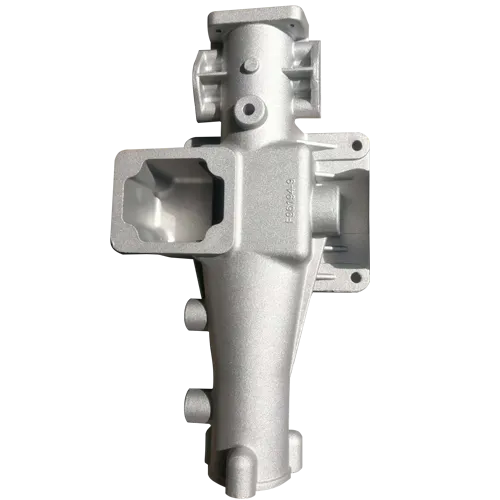Mobile:+86-311-808-126-83
Email:info@ydcastings.com
aluminum billet casting
Aluminum Billet Casting An Overview
Aluminum billet casting is a vital manufacturing process that produces solid aluminum shapes known as billets, which are essential in various industries, including automotive, aerospace, and construction. The advantage of using aluminum billets lies in their excellent properties, such as lightweight, corrosion resistance, and good machinability. This article explores the aluminum billet casting process, its applications, and the benefits it offers.
The Casting Process
The aluminum billet casting process typically involves melting aluminum alloys, which are then poured into molds to create the desired shapes. This process can be divided into two primary methods direct chill (DC) casting and indirect chill casting.
In direct chill casting, molten aluminum is poured into a water-cooled mold, where rapid solidification occurs. The cooling rate is crucial as it affects the microstructure of the aluminum, leading to improved mechanical properties. As the aluminum solidifies, it is continuously withdrawn from the mold, forming long strands that are subsequently cut into manageable billets.
Indirect chill casting, on the other hand, uses a heated mold, which allows for a different cooling rate than DC casting. This method can produce billets with unique characteristics, suitable for specific applications. Regardless of the method, achieving a uniform temperature distribution and minimizing defects during the casting process is essential for producing high-quality billets.
Applications of Aluminum Billets
Aluminum billets have a wide range of applications due to their flexibility and adaptability. One of the most significant uses is in the extrusion process, where billets are heated and forced through a die to create various aluminum profiles. These extruded shapes are then used in products like window frames, automotive parts, and structural components.
In addition to extrusion, aluminum billets are used in machining processes to create intricate parts for engines, aircraft, and other machinery. The ability to easily machine aluminum makes it a preferred choice in industries where precision components are necessary. Furthermore, billets serve as a raw material for casting and forging processes, contributing to the production of a myriad of end products.
aluminum billet casting

Benefits of Aluminum Billet Casting
The aluminum billet casting process offers several advantages that make it favorable over other materials and manufacturing methods. One of the key benefits is the lightweight nature of aluminum, which helps reduce overall weight in applications, thereby enhancing fuel efficiency in vehicles and reducing costs in transport.
Corrosion resistance is another significant advantage of aluminum. Unlike other metals, aluminum does not rust, making it ideal for applications exposed to the elements. This resistance extends the lifespan of products made from aluminum billets, resulting in lower maintenance costs and improved durability.
Moreover, the casting process allows manufacturers to produce large volumes of billets in various shapes and sizes, facilitating versatility in design. Aluminum billets can be further customized by altering the alloy composition, tailoring the material properties to meet specific demands of different industries.
Challenges and Innovations
Despite its numerous advantages, aluminum billet casting is not without challenges. Managing the quality of the raw materials, ensuring uniform heating and cooling, and preventing defects like porosity and inclusions are critical for maintaining product quality. Continuous improvements in technology and production techniques have been essential in addressing these challenges.
Recent innovations in aluminum billet casting include automated systems for monitoring and controlling the casting process, as well as advancements in alloy development. These innovations help manufacturers produce high-strength, lightweight materials while minimizing waste and improving energy efficiency.
Conclusion
Aluminum billet casting is a crucial process that plays a significant role in modern manufacturing. By creating high-quality billets, this process supports a wide range of industries, delivering materials that contribute to innovative products and solutions. As technology advances and the demand for sustainable materials increases, aluminum billet casting will continue to evolve, ensuring its place in the future of manufacturing.
-
Impeller Technology That Powers Precision in Pump SystemsNewsMay.22,2025
-
Valve Durability Begins with Quality Cast Iron ComponentsNewsMay.22,2025
-
Performance Cooling with Advanced Automobile Water Pump SolutionsNewsMay.22,2025
-
How Motor Housing and Oil Pans Shape Engine PerformanceNewsMay.22,2025
-
How Metal Castings Drive Modern Manufacturing EfficiencyNewsMay.22,2025
-
Exploring the Engineering Behind Valve Body CastingsNewsMay.22,2025











